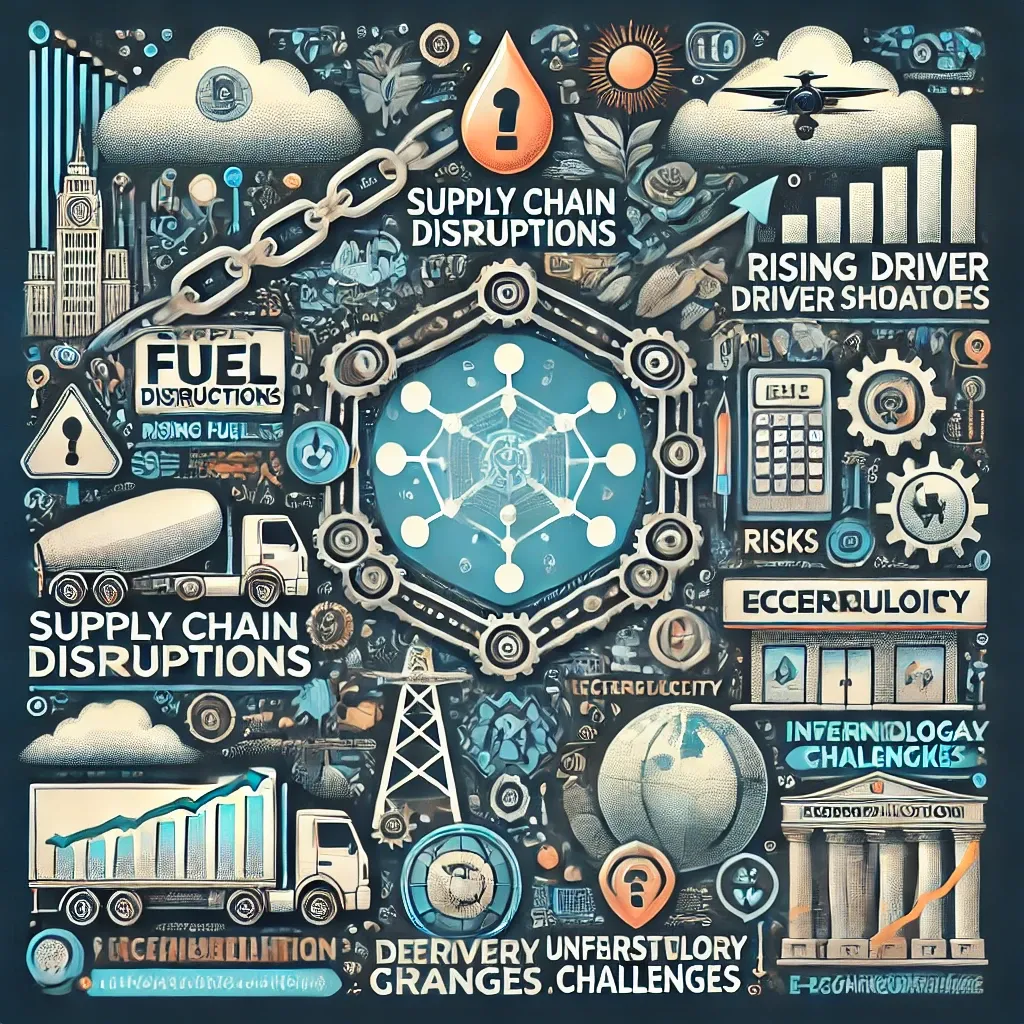
The transportation and logistics industry serves as the backbone of the global economy, ensuring that goods move efficiently from manufacturers to consumers. However, the sector faces a series of challenges that threaten to disrupt supply chains and impact profitability. Addressing these issues is crucial to maintaining stability in the industry and meeting the growing demands of a globalized world.
1. Supply Chain Disruptions
Unpredictable events, such as pandemics, natural disasters, and geopolitical conflicts, have highlighted the vulnerability of global supply chains. The ripple effects of these disruptions often lead to delays, increased costs, and customer dissatisfaction. Companies are now focusing on building resilient supply chains through diversification, better forecasting, and the use of advanced technologies like predictive analytics.
2. Rising Fuel Costs
Fuel prices have a direct impact on transportation costs, affecting every aspect of logistics, from shipping to last-mile delivery. The volatility of fuel markets forces companies to continuously adapt pricing models and explore alternatives, such as electric and hybrid vehicles, to reduce dependency on fossil fuels.
3. Driver Shortages
The trucking industry, a cornerstone of logistics, is grappling with a severe driver shortage. An aging workforce, demanding schedules, and high turnover rates contribute to this issue. To attract and retain drivers, companies are offering better pay, improved benefits, and enhanced working conditions. Automation, such as autonomous trucks, is also being explored as a potential long-term solution.
4. Regulatory Changes
Evolving regulations on emissions, safety, and labor practices add complexity to operations. Compliance requires significant investment in technology, training, and infrastructure. For example, the push toward greener logistics has led to stricter emission standards, compelling companies to adopt cleaner energy solutions and modernize fleets.
5. Technological Advancements
While technology presents opportunities for efficiency, integrating it into existing systems can be challenging. The adoption of technologies such as AI, blockchain, and IoT requires substantial investment and skilled personnel. However, these tools offer immense potential for improving transparency, optimizing routes, and tracking shipments in real-time.
6. Cybersecurity Risks
With the increasing reliance on digital systems, the transportation and logistics sector is more vulnerable to cyberattacks. Threats like ransomware and data breaches can disrupt operations and erode trust. Companies must prioritize cybersecurity measures, such as regular audits, employee training, and robust firewalls, to protect sensitive data and maintain operational integrity.
7. Environmental Sustainability
Sustainability is no longer optional but a necessity. Consumers and governments alike are demanding greener logistics practices, from reducing carbon footprints to minimizing waste. Companies are exploring innovative solutions like electric trucks, drones for delivery, and optimized packaging to meet these expectations while remaining competitive.
8. Infrastructure Challenges
Aging infrastructure, especially in developed countries, leads to delays and increased maintenance costs. Investments in modernizing roads, ports, and railways are critical for ensuring smooth operations. Public-private partnerships and government funding play a crucial role in addressing this issue.
9. E-commerce Growth
The rapid rise of e-commerce has reshaped the logistics landscape, with increased demand for faster deliveries and greater flexibility. Meeting consumer expectations for same-day or next-day delivery while managing costs is a persistent challenge. Companies are leveraging warehouse automation, micro-fulfillment centers, and AI-driven demand planning to keep up.
10. Globalization and Geopolitics
The interconnectedness of global trade makes logistics companies susceptible to geopolitical tensions, trade wars, and shifting economic policies. Navigating these uncertainties requires adaptability and strategic planning to mitigate risks.
Conclusion
The transportation and logistics industry operates in a dynamic environment where challenges are constant, but so are opportunities for innovation. By embracing technology, investing in workforce development, and prioritizing sustainability, companies can build resilient operations capable of thriving in an ever-changing landscape. Addressing these issues proactively will ensure the industry remains a vital component of the global economy for years to come.
Jenny is a business insurance broker with Waypoint Insurance. She can be reached at 604-317-6755 or jhansen@waypoint.ca. You can connect with Jenny on LinkedIn at: https://www.linkedin.com/in/jenny-holly-hansen-365b691b/
Jenny Holly Hansen is a cohost with Chris Sturges of the Langley Impact Networking Group. You are welcome to join us on Thursday’s from 4pm to 6pm at: Sidebar Bar and Grill: 100b - 20018 83A Avenue, Langley, BC V2Y 3R4
Jenny Holly Hansen is a cohost with Chris Sturges of the WRN News - Langley Edition
Tags: #Langley Impact Networking #Economic Growth #Business Support #Industry Insights #Collaborations and Partnerships #Transporation and Logistics #Jenny Holly Hansen

